

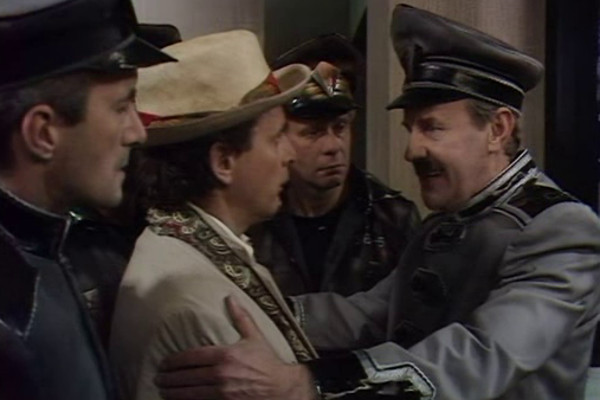
Easily the best of the season 24 stories, Paradise Towers still smacks of wasted opportunities. Heavily inspired by JG Ballard's novel "High Rise", having a Doctor Who story set in a world of condemned tower blocks with rival gangs, cannibalism and murder had the potential to be a true classic. Sadly, it's bogged down by cartoon situations and broad, almost send-up, performances.
After coming under fire for excess violence two years previously, it was unlikely that Doctor Who could depict such themes as cannibalism if played entirely straight, so it's understandable that such events are portrayed in a lighter way, such as a knife held to a companion's throat played for broad laughs. And, while some of the characters and situations stretch credulity, there is a certain comic ability from a lot of the guest cast, if watched in the right state of mind. Ultimately, though, there is a disconnect between Sylvester McCoy's first season and the rest of the series; it simply doesn't feel like the same programme. This is no longer Doctor Who, a successful family show, but a children's programme, aimed at intelligent juveniles in the absence of a regular audience.
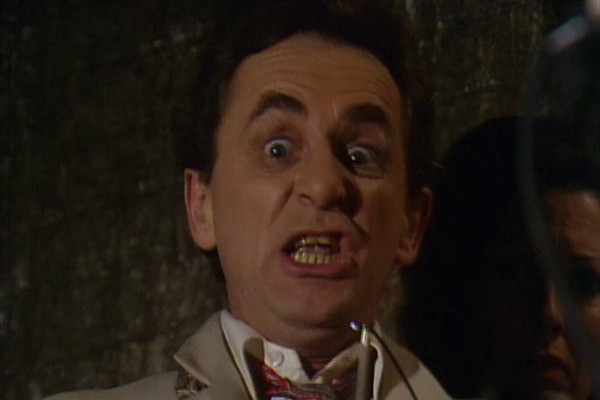
One way in which Doctor Who developed during its final two years was introducing racial minorities with more frequency. As a product of the 60s and 70s, the series had regularly been a very white affair, with non-Caucasian actors seldom featured. From 1988 the programme not only addresses this, but also gives its characters acknowledgement of the late 80s multicultural landscape: Ace not only talks about having Asian friends, but is depicted with them. However, such developments, while undoubtedly well-meaning, do often come over as somewhat trite and hamfisted: Ace's "white kids firebombed it!" line in Ghost Light is unintentionally amusing in how laboured it is (not helped by the actress's delivery) and many of the roles given to minorities are borderline patronising.
Season 25 has a role for a black man in every story: two are musicians, a third is a rapper, and the last is a café worker who exists solely to talk about slavery. While the intentions are honourable, it's misguided in execution, and Remembrance is a story that delivers its "anti-racism" message with zero restraint, hammering the viewers over the head with its subtext should they lack the basic intelligence to grasp it.
Remembrance remains a fast-paced and watchable story that is somehow inexplicably popular with Doctor Who fans, regularly breaking the top twenty in polls. But, for all its surface flair, the screenplay has a misguided retooling of the Doctor's character, whereby he willingly draws Daleks to Earth to fight, killing bystanders in the process, and then casually destroying an entire solar system. It could make for an interesting exploration of the Doctor's darker side with a more subtle execution, yet the climax, with McCoy overacting horribly, and Terry Molloy giving his worst performance as Davros, extends almost beyond the programme's bounds and into parody. The notion of the Doctor as a God-like being would be expanded upon in the "New Adventures" novels, and then find itself onto screen with the new series from 2005. Ultimately while exploring the Doctor's character can reward, it forces the programme to become inward-looking and lack any wider scope.
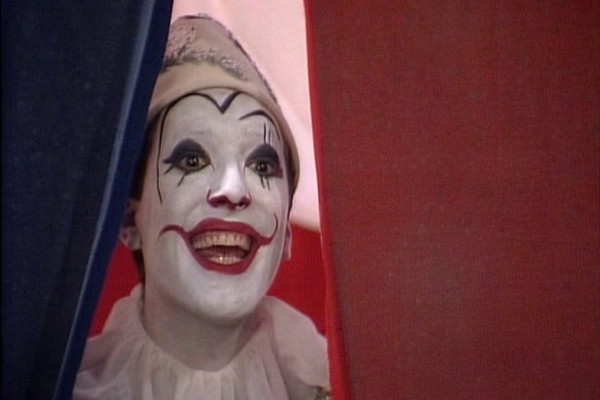
When the concept of the Doctor being unable to control the TARDIS was quietly phased out in middle of the Davison era, it did take away one of the basic tenets of the series: the Doctor can always be in peril, because he'll never know where he'll end up next. With this basic plot device removed, the Colin Baker era did often become staid and aimless, a situation even commented on in the programme itself. The McCoy era attempted to take this new format and turn it into an advantage: if the Doctor knew where he was going, then he'd plan ahead and scheme accordingly.
While such plot mechanics could eventually become just as limiting and predictable as the alternative, it did make for a series that felt as if it had a sense of direction again, even if the retrofit of the character's motivations and origins (it's heavily implied he was a contemporary of Omega and Rassilon) are sometimes hard to contend with. Yet, in playing games with viewer expectations and breaking away from traditional plot structures, it can also be a frustrating experience: there are no real concrete explanations for the viewers here, the narrative device of "the Doctor has a mysterious plan, but you can't know how/why/when/where" failing to cover plot holes with anything substantial.
So it is we never really get to find out who the Gods of Ragnarok were, how the Doctor knew about them, and a myriad of other questions. A generally quite entertaining serial (albeit with some cartoonesque characters, Nord particularly) winds up as something of an anti-climax. For the Sylvester McCoy era, this is a highlight... but in prior eras, while perhaps more predictably "rigid" in plotting, this wouldn't have made it in front of the cameras without a rewrite.
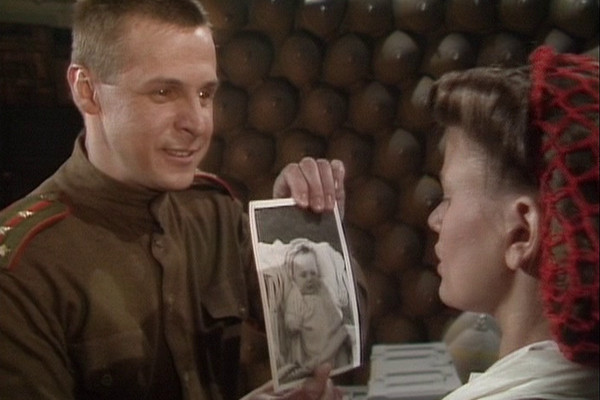
The most "traditional" of the Sylvester McCoy stories, this one attempts to tell a gothic tale, with an enemy for the Doctor who has been following him throughout time. Although containing some contrived melodrama, it holds up generally quite well, even if some performances and situations are questionable.
However, while Andrew Cartmel brought new voices to the series and gave it a new direction, one thing that has to be acknowledged is how badly timed many of the stories were. Lots of the entries here were heavily pruned for transmission, not fitting into the standard 25 minute slot, and the video and DVD releases of Fenric contain many scenes that help explain some of the plot, but were edited out for its broadcast on prime time TV. As script editor, he succeeded in giving the programme a fresh life, but often failed in the basic task of making them come in on time.
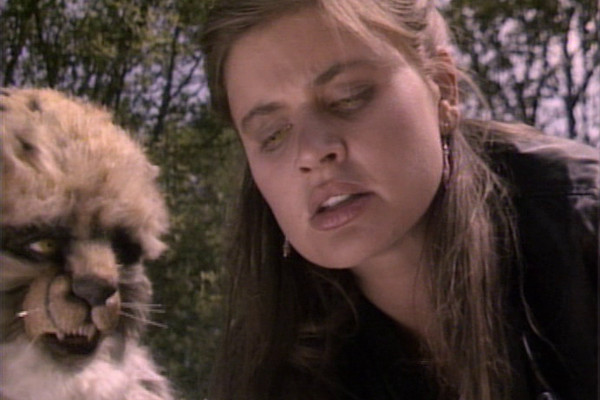
Placed opposite Coronation Street for all of his run, McCoy's final, under-advertised, season scraped an average of 4.15 million viewers. While there had been a wide outcry over initial attempts to cancel the series in 1985, four years later the programme was quietly rested, with no one seeming to notice. Survival was the last to be aired, with a dubbed-on monologue to explain fresh adventures were waiting, as the production team were well aware that it might be the end.
A story of wildly differing qualities, there's good and bad in Survival. Production-wise, the money had clearly dried up during the McCoy era, even by usual Doctor Who standards, and Survival's silly puppet cats and cuddly "Cheetah People" doesn't really alleviate any concerns that the programme was looking cheap. There's also some wild overreacting by pretty much the entire cast, with Anthony Ainley, ironically enough, one of the most restrained. To say nothing of the "survival of the fittest" theme, which is explicitly stated ad nauseum.
Yet there's good in it too, not least the often witty script by Rona Munro, the most celebrated of the McCoy writers, who went on to become an acclaimed playwright. Then there's perhaps the best soundtrack of the run, from a period when Doctor Who's incidental music was hitting rock bottom. Keff McCulloch was probably the worst musician Who ever had, including the dreadful new theme tune, and even the better soundtracks have a dated, compressed MIDI feel to them, up too loud in the mix. But Dominic Glynn brings in some themes that, while not a series standout, are highlights of the last three years. Then there's Alan Wareing, the best director of the McCoy run, and guest stars like Julian Holloway, making what might have been a clichéd character on paper become a true series standout.
But, most importantly, the story is one of the most progressive of the entire run. Doctor Who, for all its charm and appeal, operated within a very sanitised, artificial representation of Britain. Being a family show with a large child audience, it was never "Earthy", and visits to modern day Britain were always captured through a middle class, threatrical approximation of real life. While this is not to suggest that Survival captures the ethos of Loach or Bleasdale, Survival does take Doctor Who into a world of suburbia, council flats, pubs and off-licences. More significantly, it gives us a multi-racial cast, and is the first Who story to really tackle homosexuality. Such an inclusion is handled with class and a sense of style, the lesbian subtext at the heart of the story a rewarding backdrop to Sgt. Patterson's later, hilarious revelation of "what's your game, then?" Survival is frequently ludicrous and noisy, and before its runtime is over, it collapses into abject silliness. But at its heart it was Doctor Who pushing the envelope to ensure it could carry on existing in the 90s. Sadly, it never got that opportunity.
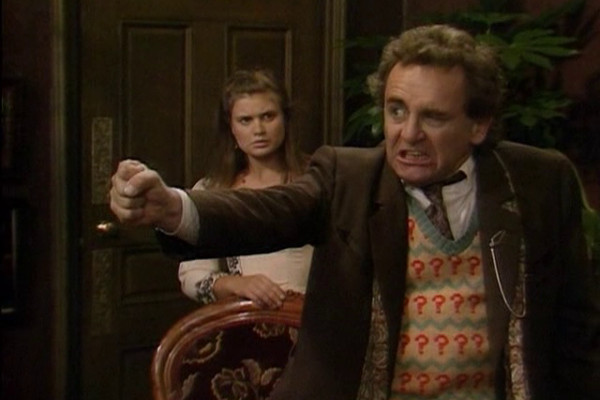
By turns inspired, pretentious, engrossing and indulgent, Ghost Light is one of the most rewarding but least accessible examples of the era. Here at the Anorak Zone the new version of Doctor Who isn't particularly relished, and one of the main reasons is that it tends to patronise the viewer, spoonfeeding every plot point, plastic emotion and nuance. Ghost Light, while not the best example of the old series, does at least credit the viewer with the intelligence to put things together by themselves.
Would it be good if the programme was always like this? Probably not. While not impenetrable, Ghost Light demands the attention in a way a casual viewer might not appreciate, giving explanations, but in rapid fire, making it a hard sell to a mainstream audience. This is television for a minority appeal, playing intellectual games that wouldn't attract channel surfers.
There are some odd moments, such as Light being inexplicably unaware of evolution, and the Doctor happy to watch someone enslaved at the climax... but then, the entire story is based around him psychologically torturing his companion. The final story to be recorded in the original 1963-1989 run, Ghost Light has its flaws, but was a series still daring to try. With all the positive qualities it possesses, it seems almost churlish to point out that it contains perhaps the worst example of the lead's acting, inexplicably gurning to excess during the final episode as he confronts Light...